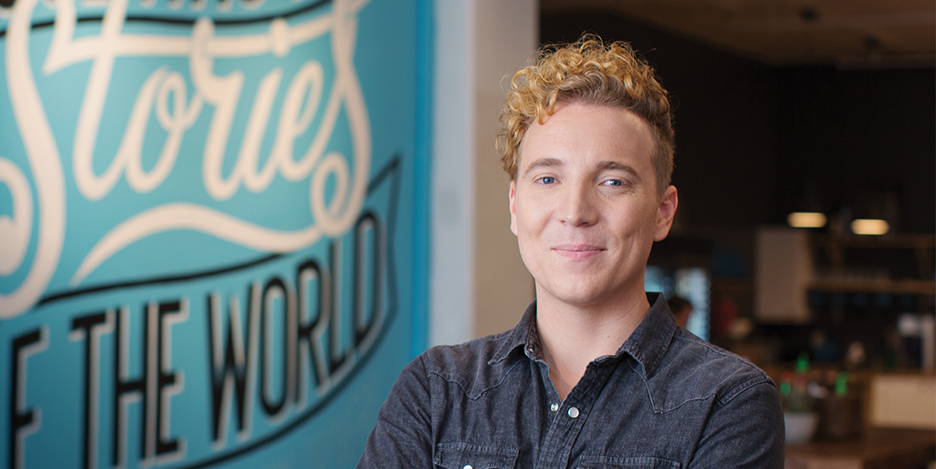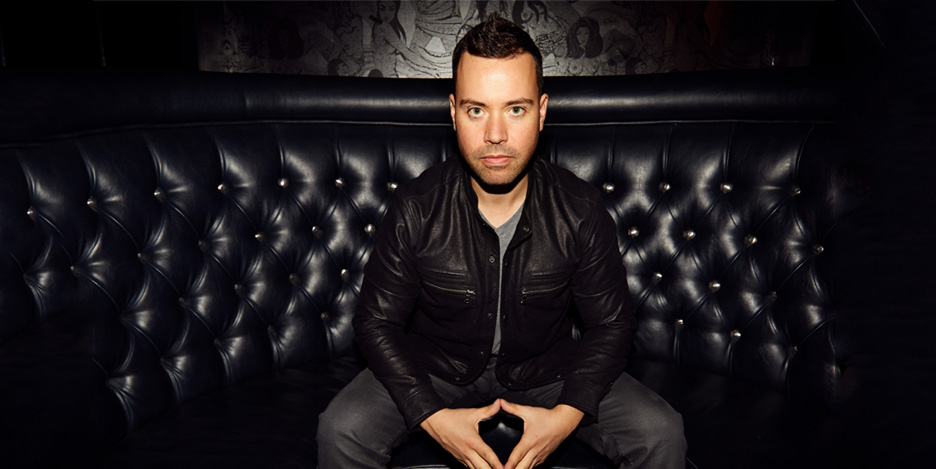This week’s guest on Famous Failures is Shane Parrish.
Shane Parrish is an innovative thinker and entrepreneur who runs Syrus Partners. His passion project, the Farnam Street blog, helps his readers master the best of what other people have figured out. His weekly newsletter, which has over 145,000 subscribers, is devoted to helping people make better decisions, develop an understanding of how the world really works, and live a better life.
I’ve been a long-time follower and fan of Shane’s work. What follows is an edited version of our conversation. I hope you enjoy it as much as I did.
What’s been the most valuable failure you’ve had in your life and what makes it valuable?
I was on the board of a hedge fund. Overall the fund did well but one particular investment did poorly and caused me to lose a massive amount of money both for clients and personally. What can I say, I eat my own cooking. That failure led me to go back and look at why I thought I was so right and what I missed. It started a process of evaluating the way that I make decisions.
Everybody ends up failing in one way or another. How you respond to failure really makes the difference where you end up in life.
What did you learn from the failure of that investment?
I became curious by asking, “How do we figure out why we were so off? How can we take this failure and learn from it?”
The world was saying I had a bad outcome, and I had to go back and see whether I was wrong and if so what I could do about it to reduce the odds I’d be wrong the next time. I started thinking more about how to make better decisions.
My ego was getting in the way. I had spent tons of time doing an analysis on this investment that failed. I had a huge personal stake in the company, and I told myself, “Oh, I must be right because I’ve done all this work.”
When I went back after the fact and reevaluated things with some distance, I could see that I was getting in my own way. I was on the wrong side of right. By getting out of my own way I could focus on getting better outcomes.
Personal knowledge is easy to improve. But I also want to gauge other people’s knowledge. Ray Dalio calls this a “believability index.”
My best advice is to ask other people their opinion, but weigh it against their knowledge, their situational knowledge, their experience, how right they’ve been in the past, how many decisions they’ve made. Maybe they’re smarter than you and maybe they’re not. Maybe they have a more believable opinion than you do. Maybe it’s more credible.
If you disagree and they’re in a place where you think they know more than you do, that’s a great opportunity to learn something more about the context of the situation.
Once you decided to learn from this failure, focus on mental models, and focus on decision making, how did you move to the creation of Farnam Street?
Farnam Street started when I was doing my MBA. At the time, I wasn’t learning things that I thought would help me better understand how the world really works.
I wasn’t learning big ideas; the mental models I could use to better understand the world and avoid stupidity. I was learning how to regurgitate textbooks. So, I took the time that I would be doing homework and I started learning on my own.
The original version of Farnam Street was a website called 68131.blogger.com, which somebody else has now, but that was the original URL. 68131 is the zip code for Berkshire Hathaway. It’s an homage to Berkshire Hathaway because it tries to borrow from the Charlie Munger and Warren Buffett method of thinking through problems in a more rational way.
Here’s something interesting. Daniel Kahneman, who’s by all accounts brilliant, has said that he’s studied all of these cognitive biases for decades and but he feels like he’s no better at avoiding them than other people. Yet there are these two guys in Omaha, Nebraska, that have figured out how to largely avoid them, account for them, work around them. I don’t know what their secrets are, but they’ve put it into practice.
That’s not to say that every problem needs be approached rationally. There’s a continuum between emotional and rational, and you must know the type of decision that you’re in and where you are on that spectrum, and then adjust accordingly.
And the knowledge of where you are on that spectrum is important. If you’re making a financial decision, you want to be entirely rational. If you’re making a different decision, like starting a business, you might want to be a little less rational and more emotional. Nothing amazing would ever happen if people only made rational decisions, because at some point the rational brain would kick in and say, “Nobody’s ever done that before. What makes you think you could do it?”
I’d love to hear more about how the platform grew from its initial beginnings as 68131 into Farnam Street. What roadblocks and failures did you experience along the way?
I’d love to tell you it was my brilliance so that your audience thinks highly of me, but mostly it was luck. I never sat back and said I want to create what we have today. Farnam Street was an outlet where I could use my brain, and it developed a following of people who craved that intellectual, no-BS stimulation. It doesn’t have a lot of fluff, and there is no clickbait.
The content is all designed to be timeless. You can go to a random page on Farnam Street and the article that you’re reading would be just as relevant as it was when it was written. If you’re learning things that change rapidly, it’s like you’re on a treadmill. I call this the Red Queen Effect. You’ve got to keep running to stay in the same relative spot. But, on the other hand, if you’re learning things that change slowly, and you’re learning how to connect those ideas, you can start building up a knowledge base that you can bring to problems.
We live in a world where we are wired and reinforced for quick success. If you want to think about having an advantage over other people, or playing in a field where you can do something that other people can’t do, one of the biggest arbitrages is the time arbitrage. It took me at least four years to find an initial following. It’s important to play the long game while other people play the short game. There’s not a lot of people that can do that. If you can do that, you’re playing a metagame … that is a strategy that most people can’t play.
Can you think of a failure that was particularly difficult for you?
I got fired once. The CEO of a company I was working for asked my opinion on something. I knew my opinion would be controversial, and I knew he had a temper. I thought to myself, “What do I value as a person?”
My answer was, “I value thoughtful disagreement.”
I wouldn’t say that should always be the case. There are situations where thoughtful disagreement has a low expected value. If, for instance, you’re a soldier in a war zone, you don’t want to disagree with your commanding officer while you’re getting shot at. But that wasn’t the case here.
I wanted to set an example for how to bring up controversial opinions, and I wanted to try to create better outcomes for people. But they didn’t act on my opinion because I brought up a reality that people didn’t want to deal with. We naturally have a hard time seeing things that are not the way we want them to be. This makes it hard to deal with reality.
If your ego is wrapped up in being right, as opposed to creating a better outcome, you are less likely to be open minded about another person’s thinking. You’re not going to ask questions. You’re not going to care about what other people think. You’re going to find yourself sitting there waiting for somebody to stop talking just so you can tell them what you told them before.
People get insulated from reality. The higher you go, the more people tend to surround themselves by people who tell them exactly what they want to hear. You have to take active steps to make sure that that doesn’t happen.
What do you think is the best way to express controversial opinions without getting yourself into a situation where you might lose your job over it?
There’s an art to it but you also shouldn’t necessarily bow to the culture that you’re in. That’s an easy way out.
If you don’t want to work for an organization where disagreement might get you fired, you should be trying to find a way out.
The problem is a psychological one. There’s this implicit problem in organizations where I’m inclined to agree with my boss because I know that if I don’t cause too much trouble I could be in that seat making the decision. It’s based on protecting egos. It’s based on incentives. It’s based on not ruffling feathers. And all of that goes against what I want to do, which is to create the best outcomes possible.
You’re a prolific writer. How do you fail when it comes to writing?
I fail all the time.
We have an editor and she’ll sometimes send articles back to me and say, “This is garbage. Were you drunk when you wrote this?”
I write every day. It’s not always good but it’s important that I try every day. That’s part of what it means to be a professional.
I don’t usually stumble for topics to write about, which is a good thing. My office is basically like a library. There must be 5,000 books in here. There’s no shortage of things that I want to talk about, synthesize, and explore.
Do you have any parting thoughts on failure?
Failure’s an opportunity to learn. Most people don’t think of it that way and it’s hard when you’re failing, or when you’ve just failed, to regroup and say, “What can I learn from this?” But over a long life, that makes the difference between incredibly successful attempts and less successful attempts. There is no progress without overcoming resistance.
Remember, the mistake doesn’t define you. You may have failed at something, but that doesn’t make you a failure as a person.
What defines you is how you respond to that failure. Do you ask, “What can I do better next time? What can I learn from this? What is the world trying to tell me?” Or do you bury your head in the sand and then make the same mistake over and over again? I’ve seen a lot of people who have twenty years of experience on paper, but they really have one year of experience because they’ve repeatedly made the same mistakes for twenty years.




